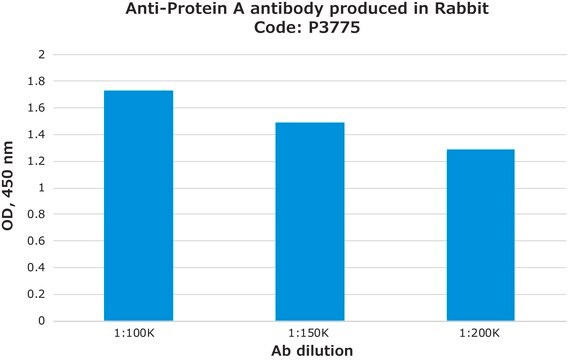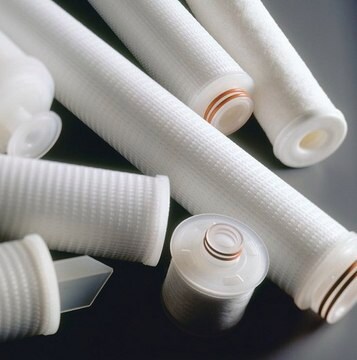MABT847
Anti-MYH-4 Antibody, clone 2G72F10
clone 2G72F10, from rat
Sinónimos:
Myosin-4, Myosin heavy chain 2b, MyHC-2b, Myosin heavy chain 4
About This Item
IHC
WB
immunohistochemistry: suitable (paraffin)
western blot: suitable
Productos recomendados
biological source
rat
antibody form
purified antibody
antibody product type
primary antibodies
clone
2G72F10, monoclonal
species reactivity
mouse, rat
packaging
antibody small pack of 25 μg
technique(s)
immunofluorescence: suitable
immunohistochemistry: suitable (paraffin)
western blot: suitable
isotype
IgG1κ
NCBI accession no.
UniProt accession no.
target post-translational modification
unmodified
Gene Information
mouse ... Myh4(17884)
General description
Specificity
Immunogen
Application
Western Blotting Analysis: A representative lot detected MYH-4 in Western Blotting applications (Sawano, S., et. al. (2016). PLoS One. 11(11):e0166080).
Immunofluorescence Analysis: A representative lot detected MYH-4 in Immunofluorescence applications (Sawano, S., et. al. (2016). PLoS One. 11(11):e0166080).
Immunohistochemistry Analysis: A 1:25 dilution from a representative lot detected MYH-4 in mouse heart and mouse skeletal muscle tissues.
Cell Structure
Quality
Western Blotting Analysis: 1 µg/mL of this antibody detected MYH-4 in mouse soleus muscle tissue lysate.
Target description
Physical form
Storage and Stability
Other Notes
Disclaimer
¿No encuentra el producto adecuado?
Pruebe nuestro Herramienta de selección de productos.
Certificados de análisis (COA)
Busque Certificados de análisis (COA) introduciendo el número de lote del producto. Los números de lote se encuentran en la etiqueta del producto después de las palabras «Lot» o «Batch»
¿Ya tiene este producto?
Encuentre la documentación para los productos que ha comprado recientemente en la Biblioteca de documentos.
Nuestro equipo de científicos tiene experiencia en todas las áreas de investigación: Ciencias de la vida, Ciencia de los materiales, Síntesis química, Cromatografía, Analítica y muchas otras.
Póngase en contacto con el Servicio técnico







